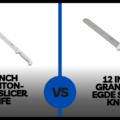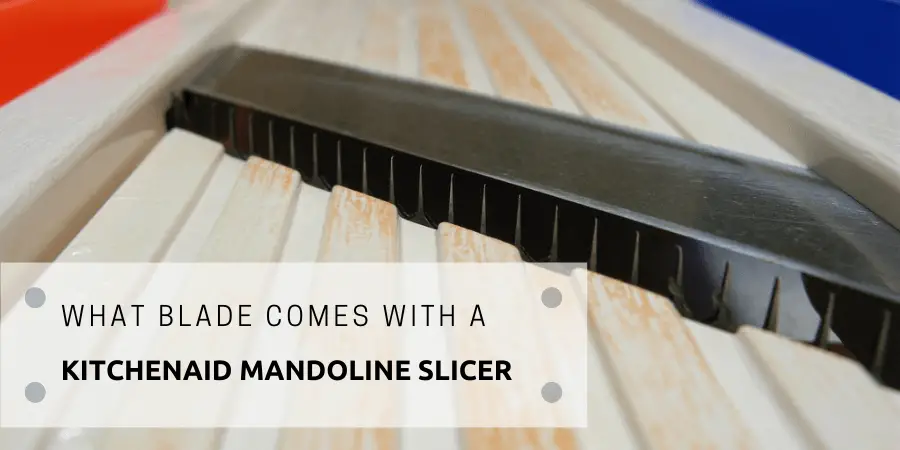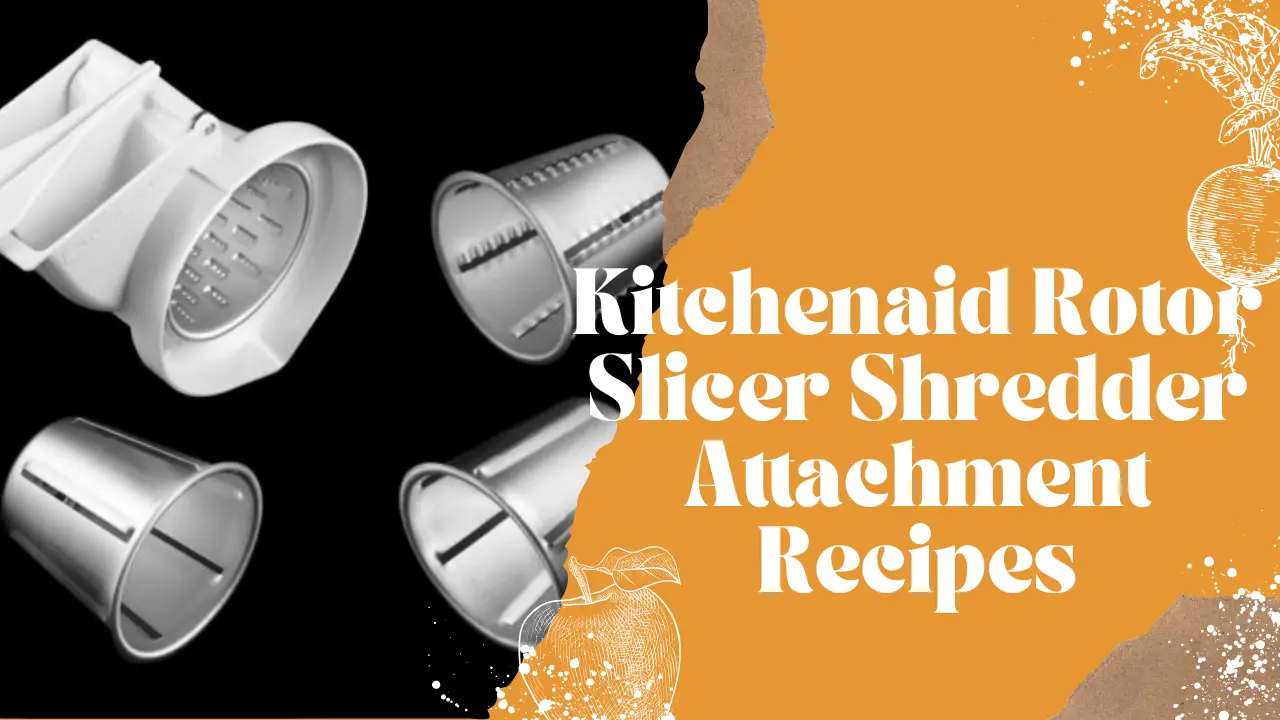Yes, ceramic knives are generally safe to use with the dishwasher. Ceramic knives are much harder than steel and aren’t prone to warping or rusting like a regular stainless-steel knife, so they can withstand the dishwasher’s heat. However, it is important to note that ceramic knives should always be placed in a separate containers from other kitchen utensils and dishes to prevent chipping or cracking. Using the lowest temperature setting possible when washing ceramic knives in a dishwasher is important to avoid further damage.
Are Ceramic Knives Dishwasher Safe?
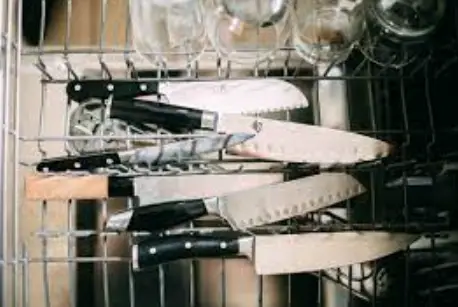
Yes, but it should be done with caution. Ceramic knives are generally dishwasher-safe, although they can become dull over time if not properly cared for. All ceramic knives should be washed separately from other items in the dishwasher to prevent scratches or chips. It’s also important to keep ceramic knives away from metal items, as they are more likely to chip when clanged against other objects.
How To Wash Ceramic Knives In Dishwasher?
Step 1: To wash ceramic knives in the dishwasher, put them in a top dishwasher rack with their handles facing up.
Step 2: Place the knives away from other items to prevent any scratches or chips that may be caused due contact between the knives and other items during washing.
Step 3: Set the dishwasher to a gentle cycle with mild detergent.
Step 4: After washing, remove the knives from the dishwasher and dry them with a soft cloth or towel before storing them.
Step 5: Avoid using harsh chemicals or scrubbing pads on ceramic knives, as they can cause damage to the blades.
Step 6: It is important to check that your dishwasher is not too hot or has any sharp objects in it, as this can also cause damage to the blades of ceramic knives.
How Do You Clean Ceramic Knives?
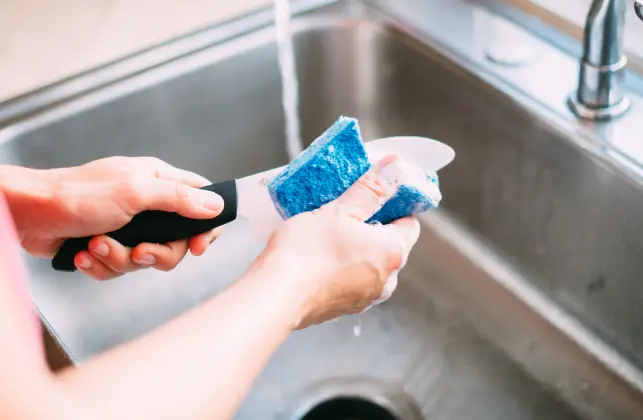
- Handwashing is the safest and most recommended method for cleaning ceramic knives. Use warm soapy water and a soft sponge or cloth to gently scrub away any food particles, stains, or dirt from the blade.
- If you use a dishwasher, ensure that your ceramic knife only comes into contact with plastic or wooden utensils and other non-metallic items.
- Keep the blade away from metal hinges, racks, and other metal objects in the dishwasher, as these can damage the ceramic material.
- If your ceramic knife has a handle with intricate details, like an ergonomic design or patterned grip, you may also want to consider handwashing the handle.
- Air drying is the best way to dry your ceramic knives after washing them by hand or in the dishwasher. Use a soft cloth or paper towel to remove excess water before storage.
- Never use abrasive brushes, steel wool, scouring pads, or harsh chemicals when cleaning a ceramic knife. Doing so can cause scratches and other damage to the blade that will affect the overall performance of the knife.
- Regularly inspect your ceramic knives for any wear or damage and replace them if necessary. This will ensure that your knives stay sharp longer and remain safe.
What Not To Do With Ceramic Knives?
Please don’t use them on hard surfaces: Ceramic blades are very hard and brittle. They can easily chip on a hard surface like glass or metal.
Please don’t attempt to sharpen them: Ceramic knives come pre-sharpened and cannot be sharpened using conventional methods. Doing so could break the blade or otherwise damage it. Instead, look for ceramic sharpeners specially made for the purpose.
Please don’t leave them in water: Ceramic knives are not waterproof and should never be left in water or exposed to moisture for an extended period. Doing so could cause the blade to rust and warp, rendering it useless.
Please don’t force them through food: When using a ceramic knife, pay attention to the food you’re cutting. Since the blade is so hard and sharp, it may get stuck if forced through something too tough or dense. To prevent this from happening and damaging your knife, cut carefully and don’t force it through tough material. Use a different type to cut something too tough for the knife. It’s also important to never use your ceramic knife on frozen items as it may chip or crack.
Don’t store them in a drawer without a sheath: Due to the hardness of ceramic blades, they can chip and even break when stored in a drawer without a protective sheath. Even though ceramic knives are ridiculously strong, they must be handled carefully. If you store them unprotected, you risk having the edges knocked off or broken altogether. If you use your ceramic knife regularly and want it to last, protect it with a sheath when not in use.
Advantages Of Using Ceramic Knives
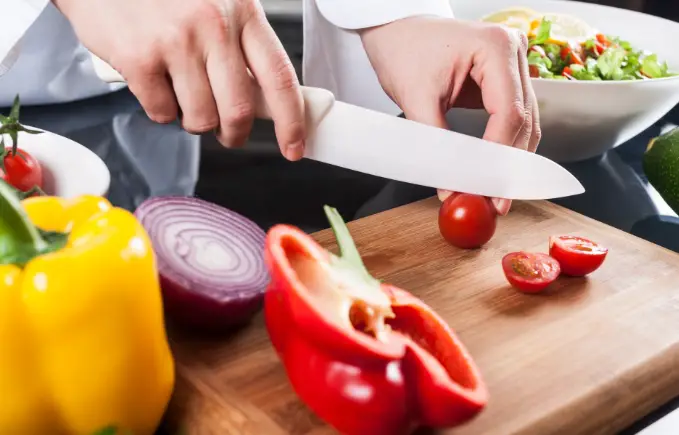
- Ceramic knives are sharper than traditional steel blades, helping you easily cut precisely.
- Ceramic knives are also more durable and longer lasting than their metal counterparts. The blades will not corrode or rust, allowing them to last for years of use.
- Due to the lack of metallic properties, ceramic knives will not interact with the food you’re cutting as much as steel blades would. This can help to preserve the flavor and texture of your ingredients.
- Ceramic knives are also much lighter than standard steel knives, making them easier to handle for those with weaker hands or wrists.
- Ceramic knives are also much easier to clean than their steel counterparts, as they do not accumulate food particles and bacteria in the same way as steel blades.
Disadvantages Of Using Ceramic Knives
- Although ceramic knives are very sharp, they can be brittle and prone to chipping if not handled with care.
- If ceramic knives come into contact with hard items such as bones or frozen food, they may chip or break easily.
- Ceramic knives can also be difficult to sharpen since they require a special diamond sharpener.
- Ceramic knives are more expensive than their steel counterparts, so they may not be ideal for those on a tight budget.
FAQs
How long do Ceramic knives last?
Ceramic knives are usually very durable and can last for many years, depending on their frequency of use. Generally, ceramic knives must be sharpened every six months to maintain performance. It is important to note that they must always be handled carefully, as they can break easily if dropped or mishandled.
Is a ceramic knife safe for slicing meat?
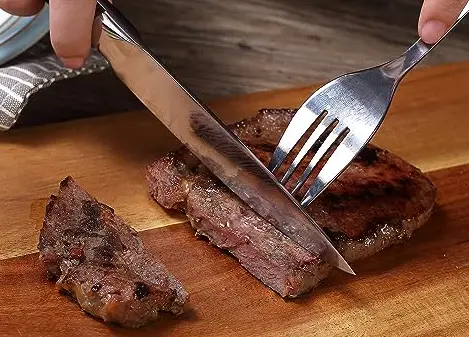
Yes, ceramic knives are safe for slicing meat. Ceramic blades are designed to be extremely sharp and durable, so they can effectively slice through tougher meats like beef and pork without damaging them.
What are the different types of knives?
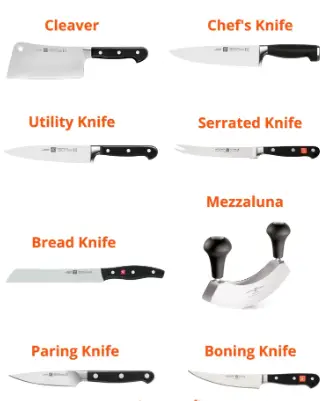
Knives come in a variety of shapes, sizes, and materials. Common types include chef’s knives, paring knives, boning knives, slicing knives, utility knives, fruit and vegetable carving knives, cheese knives, bread knives, and more.
What makes a knife perform sufficiently?
Several elements determine a knife’s effectiveness, such as its blade material and edge.
Conclusion
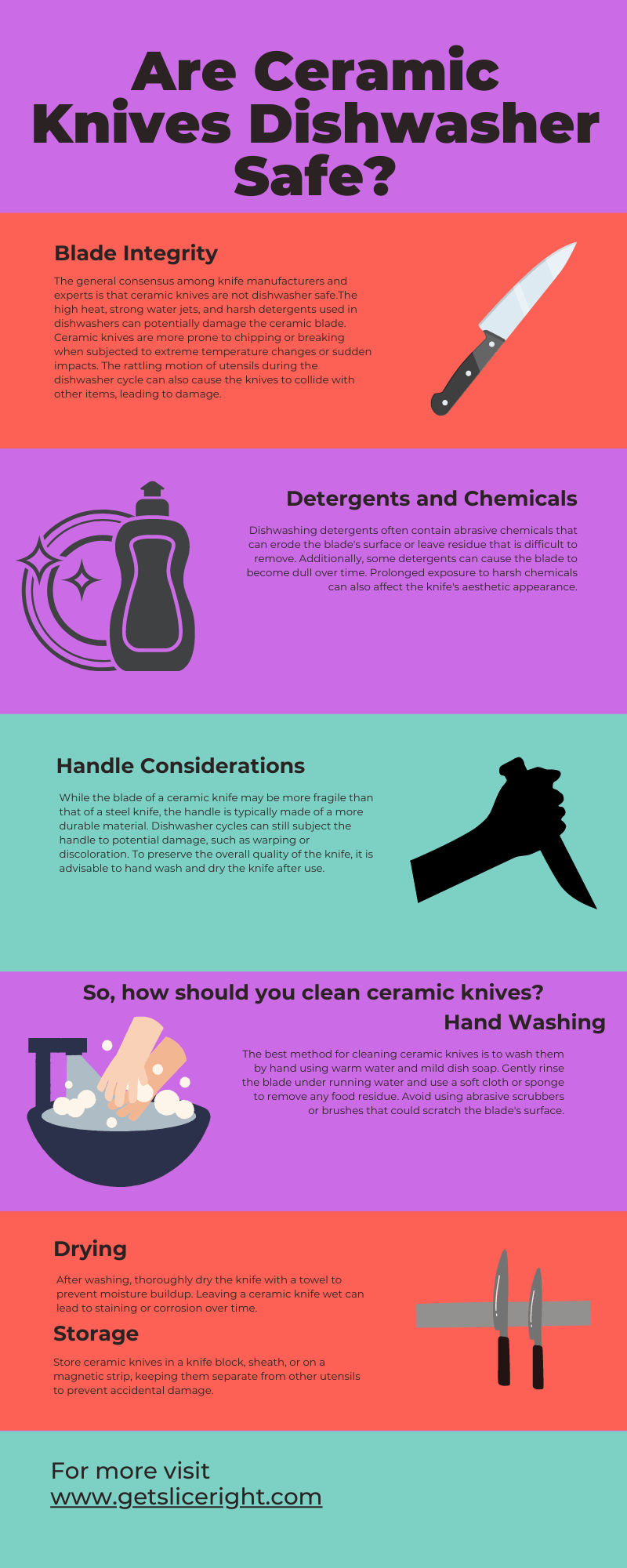
Whether a ceramic knife is dishwasher safe depends on the type of knife, its construction, and the manufacturer’s recommendations. Many ceramic knives can be washed in a dishwasher with no problems. However, checking with your manufacturer on recommended cleaning methods before proceeding is important. If you are unsure of what to do, it’s best to handwash ceramic knives with mild soap and water. This will help ensure the longevity of your knives and keep them in top condition for many years. Use appropriate cutting boards when using your ceramic knives, as they can be very sharp and hard on other surfaces. With proper care, ceramic knives can last many years and offer a reliable, safe cut for all your kitchen needs.

Mario Batali is a renowned author, food enthusiast, and passionate chef who has dedicated his life to exploring the world of culinary arts. With a love for sharing his knowledge and experiences, Mario has become a prominent figure in the food blogging community, inspiring countless readers with his creativity and expertise.
In addition to his culinary prowess, Mario Batali is also a talented writer with a flair for engaging storytelling. He launched his own food blog to share his recipes, cooking tips, and personal experiences in the kitchen. Over time, Mario’s blog gained a loyal following of food enthusiasts who appreciate his unique approach to cooking and his dedication to using only the finest ingredients.
Mario Batali’s passion for food and his commitment to sharing his knowledge with others have made him a true inspiration in the world of culinary arts. Through his blog, cookbooks, and public appearances, Mario continues to spread his love of food and the joy of cooking with his ever-growing fanbase.

